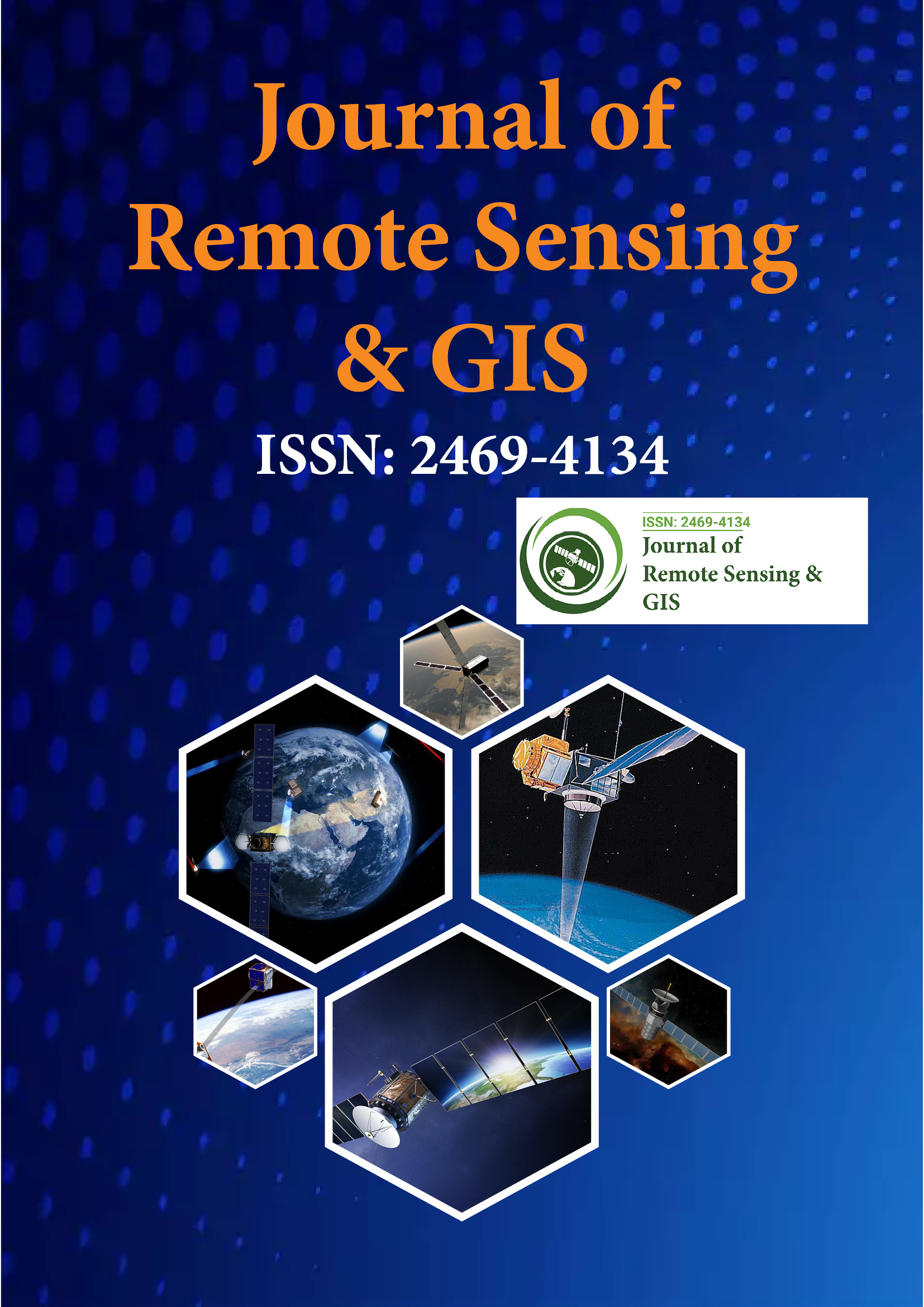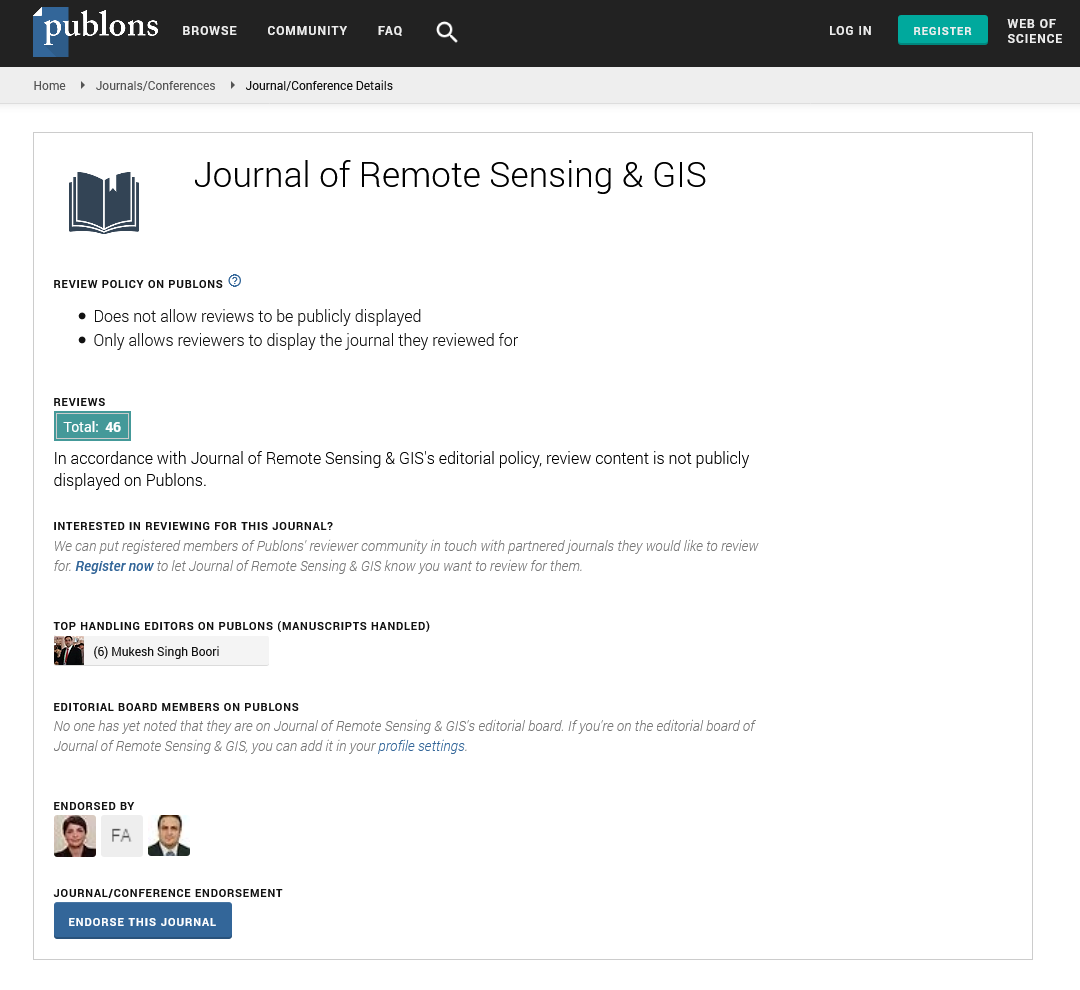Indexed In
- Open J Gate
- RefSeek
- Hamdard University
- EBSCO A-Z
- OCLC- WorldCat
- Publons
- International Scientific Indexing
- Euro Pub
- Google Scholar
Useful Links
Share This Page
Journal Flyer

Open Access Journals
- Agri and Aquaculture
- Biochemistry
- Bioinformatics & Systems Biology
- Business & Management
- Chemistry
- Clinical Sciences
- Engineering
- Food & Nutrition
- General Science
- Genetics & Molecular Biology
- Immunology & Microbiology
- Medical Sciences
- Neuroscience & Psychology
- Nursing & Health Care
- Pharmaceutical Sciences
Object-based forest cover change mapping using remote sensing in Nuristan province, Afghanistan
4th International Conference on GIS and Remote Sensing
September 27-28, 2018 | Berlin, Germany
Shogufa Popal and Satoshi Tsuyuki
Kabul University, Afghanistan
Scientific Tracks Abstracts: J Remote Sensing & GIS
Abstract:
Deforestation and forest degradation are among significant environmental issues in Afghanistan but has not been studied intensively due to insecurity, confined budget, lack of expertise, and limited accessibility to new technology. In such a situation, remote sensing technology offers practical and economical means to acquire reliable, consistent, and up-to-date information for assessing forest cover and monitoring its spatial and temporal dynamics. Therefore, this study aims to detect forest cover change in six districts of Nuristan Province over the past three decades (1998‚????2016) using object-based classification of Landsat satellite imagery. The specific objectives to achieve the overall purpose of this study are: (i) ascertaining the current status of the forest cover, (ii) mapping forest cover in 1998, 2008, and 2016, and (iii) detecting forest cover change between 1988‚???? 2008 and 2008‚????2016. The research methodology comprises of: (i) pre-processing of Landsat images using TNTmips (ii) objectbased image classification using eCognition Developer 9.0, (iii) mapping land and forest cover change, and (iv) quantifying land cover dynamics together with forest cover loss and gains. Overall, the results showed that although deforestation has not occurred on a large scale (7.26 km2) in the study area from 1998 to 2016, the forests have been continuously degraded during the study period, converting from dense broad-leaved forest to sparse as well as sparse to other vegetation areas, which can be defined as ‚????forest degradation‚??Ě. Meanwhile, the overall accuracy for the maps were relatively high (>91 %).
Biography :
Shogufa Popal has completed her Bachelor’s Degree from Kabul University in 2012 and her Master’s Degree from the University of Tokyo in 2018. Currently, she is a Lecturer in the Department of Forestry and Natural Resources, Faculty of Agriculture, Kabul University.
E-mail: shogufa.popal@gmail.com

